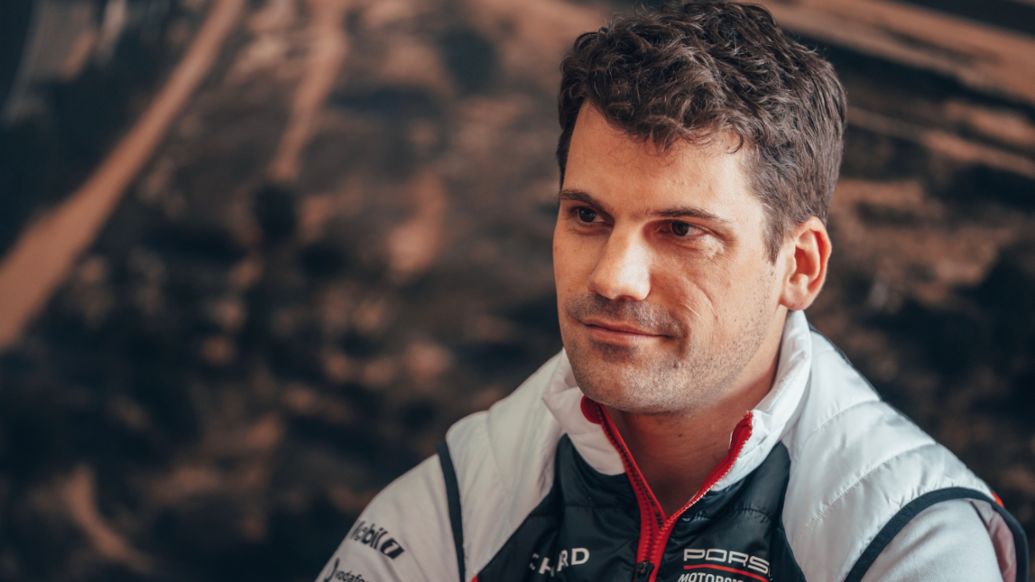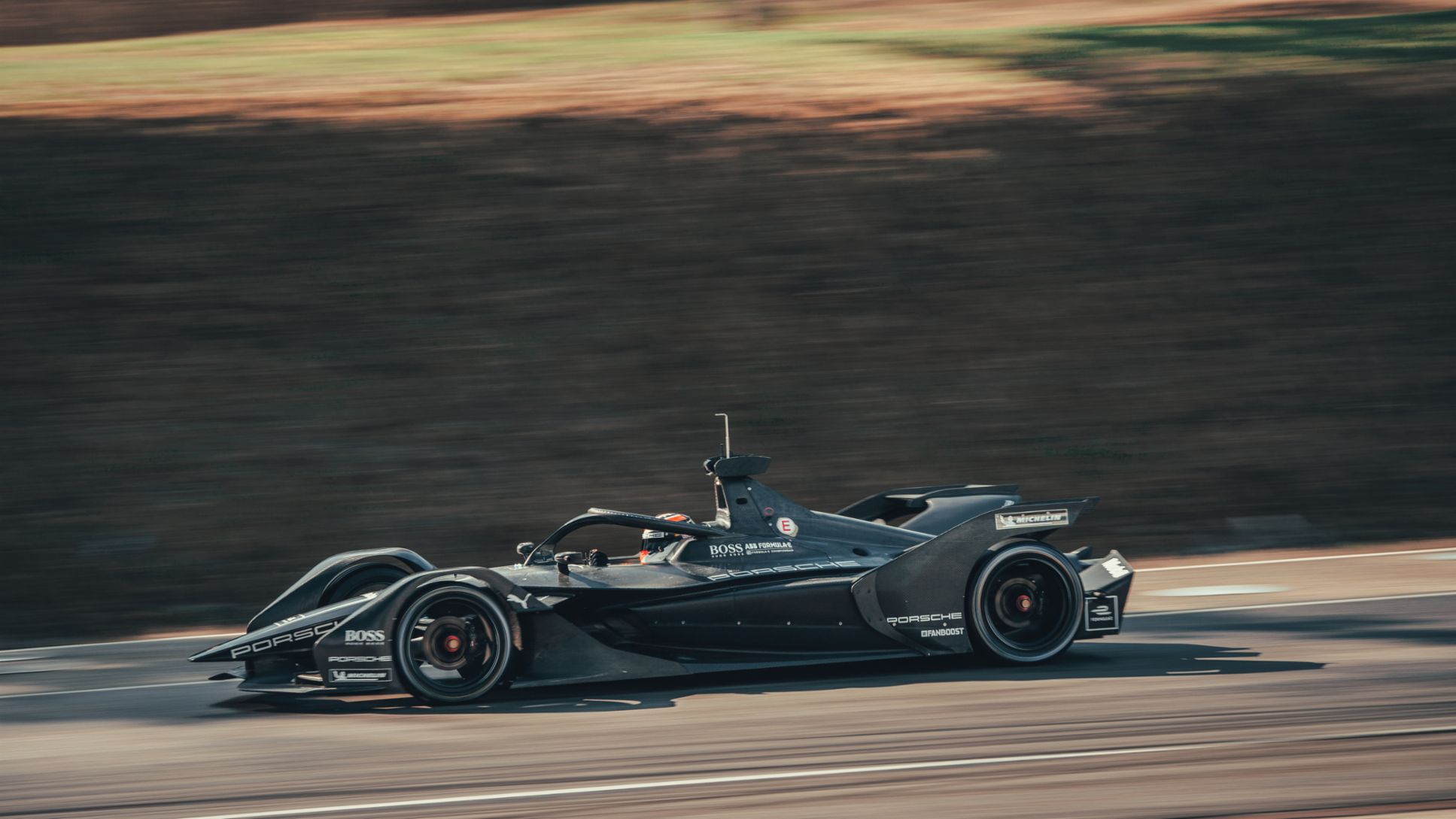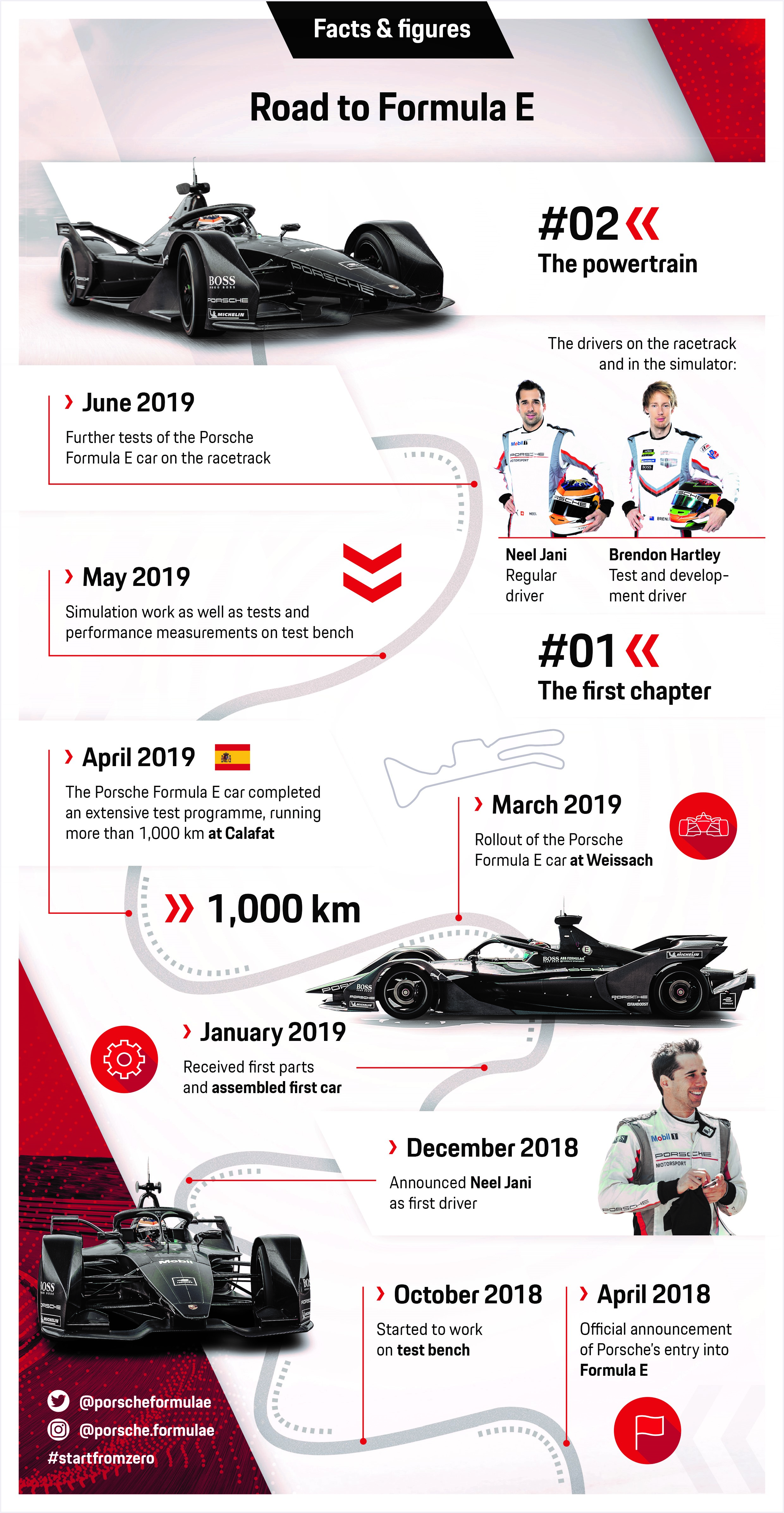The International Automobile Federation (FIA) will perform the homologation this summer. After this, no further changes may be made to the drive components for Season 6. The continuous infographic series “Road to Formula E” shows the current state of play.
The development of the powertrain is central to Porsche’s works entry, and is a decisive competitive factor. In terms of cost control, Formula E provides the car chassis and the standard battery, whereas all drive components are the manufacturers’ individual concepts which means Porsche can go its own way when it comes to developing key technologies. These include electric engine, inverter, brake-by-wire system, transmission, differential, driveshafts and the suspension components attached to the rear-axle, as well as the cooling system and control unit.

Malte Huneke (Technical Project Leader): “Since building the Porsche Formula E car in January, we have made major progress in both development and testing. We can continue to optimise its components up until the homologation to ensure that we are perfectly prepared for our maiden Formula E season. The simulation work is particularly helpful in, say, optimising energy management. However, the actual conditions only prevail at a racetrack. For example, it is not possible to simulate driving over kerbs completely accurately in the simulator or on the test bench. Tyre management and braking behaviour are also best researched at the racetrack. We are right on schedule: with extensive test drives at the racetracks, continuous work in the simulator and tests on the test bench. We gain important data and insights for the development


